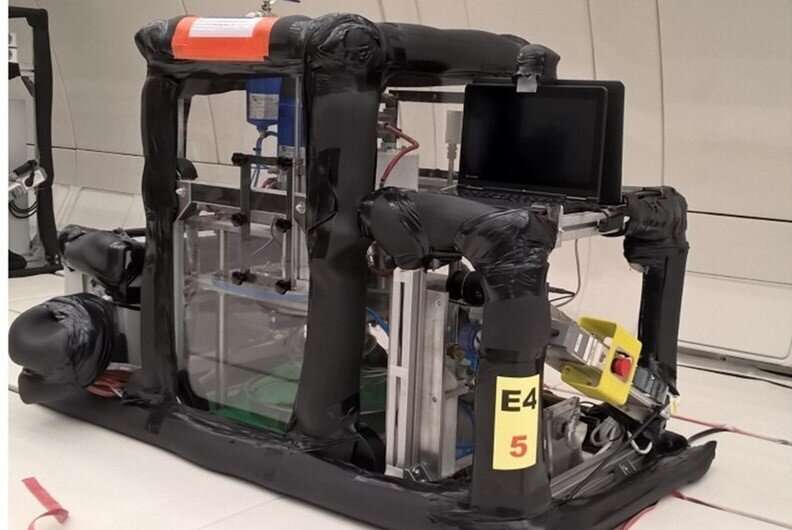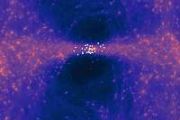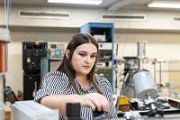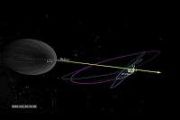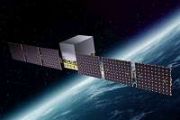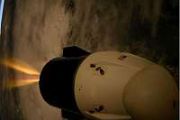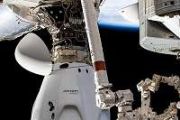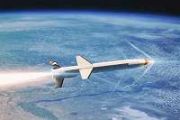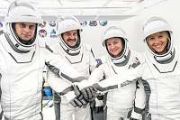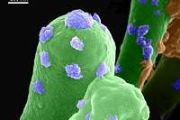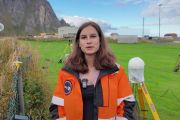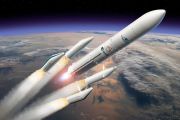
Copernical Team
LeoStella builds and delivers its 20th satellite
 LeoStella, the U.S.-based satellite manufacturer, has successfully delivered its twentieth satellite since its inception in 2019. This accomplishment signals a key milestone in the firm's growth trajectory. The latest delivery, the third of its kind, was made to Loft Orbital Solutions.
LeoStella's 20th satellite was based on its LS-100 bus platform, marking another achievement for the manu
LeoStella, the U.S.-based satellite manufacturer, has successfully delivered its twentieth satellite since its inception in 2019. This accomplishment signals a key milestone in the firm's growth trajectory. The latest delivery, the third of its kind, was made to Loft Orbital Solutions.
LeoStella's 20th satellite was based on its LS-100 bus platform, marking another achievement for the manu Apogeo Space contracts Momentus to orbit 9 satellites for IoT constellation
 Momentus Inc., a public company trading on the NASDAQ under the ticker MNTS, is set to deliver nine satellites into orbit for Apogeo Space's Internet of Things (IoT) constellation. The move represents a significant step in Apogeo's ambitious project of developing a 100-satellite network, further demonstrating the growing collaboration between these two space technology firms.
Apogeo Space'
Momentus Inc., a public company trading on the NASDAQ under the ticker MNTS, is set to deliver nine satellites into orbit for Apogeo Space's Internet of Things (IoT) constellation. The move represents a significant step in Apogeo's ambitious project of developing a 100-satellite network, further demonstrating the growing collaboration between these two space technology firms.
Apogeo Space' SpaceDaily.com set to ditch all Network Advertising suppliers
 Digital advertising is changing course and SpaceDaily.com, with its 25 high-tech websites including SpaceWar.com, SolarDaily.com, GPSDaily.com, and RoboDaily.com, is onboard with this change. Simon Mansfield, publisher of Space Media Network says the major ad networks are a broken business model due to their disregard for demographic specifics, leading to questionable ad relevance, and site perf
Digital advertising is changing course and SpaceDaily.com, with its 25 high-tech websites including SpaceWar.com, SolarDaily.com, GPSDaily.com, and RoboDaily.com, is onboard with this change. Simon Mansfield, publisher of Space Media Network says the major ad networks are a broken business model due to their disregard for demographic specifics, leading to questionable ad relevance, and site perf RAND study calls for global space traffic management body
 New research from the RAND Corporation underscores the urgent necessity for the establishment of an International Space Traffic Management Organization (ISTMO). This conclusion comes as a response to the ballooning population of active satellites and other debris orbiting Earth, which is edging the world closer to a critical tipping point in space traffic management (STM). With almost 7,000 acti
New research from the RAND Corporation underscores the urgent necessity for the establishment of an International Space Traffic Management Organization (ISTMO). This conclusion comes as a response to the ballooning population of active satellites and other debris orbiting Earth, which is edging the world closer to a critical tipping point in space traffic management (STM). With almost 7,000 acti Webb Telescope detects universe's most distant complex organic molecules
 Researchers have detected complex organic molecules in a galaxy more than 12 billion light-years away from Earth - the most distant galaxy in which these molecules are now known to exist. Thanks to the capabilities of the recently launched James Webb Space Telescope and careful analyses from the research team, a new study lends critical insight into the complex chemical interactions that occur i
Researchers have detected complex organic molecules in a galaxy more than 12 billion light-years away from Earth - the most distant galaxy in which these molecules are now known to exist. Thanks to the capabilities of the recently launched James Webb Space Telescope and careful analyses from the research team, a new study lends critical insight into the complex chemical interactions that occur i Webb Telescope reveals early universe crackled with bursts of star formation
 Among the most fundamental questions in astronomy is: How did the first stars and galaxies form? NASA's James Webb Space Telescope is already providing new insights into this question. One of the largest programs in Webb's first year of science is the JWST Advanced Deep Extragalactic Survey, or JADES, which will devote about 32 days of telescope time to uncover and characterize faint, distant ga
Among the most fundamental questions in astronomy is: How did the first stars and galaxies form? NASA's James Webb Space Telescope is already providing new insights into this question. One of the largest programs in Webb's first year of science is the JWST Advanced Deep Extragalactic Survey, or JADES, which will devote about 32 days of telescope time to uncover and characterize faint, distant ga China's main rocket engine for lunar crewed missions sets record
 In recent developments from the China Aerospace Science and Technology Corporation, the primary rocket engine designed for future manned lunar missions has undergone its sixth trial run. This round of testing brings the cumulative operation time of the 130-tonne class liquid oxygen kerosene rocket engine to an impressive 3,300 seconds, establishing a new record for China.
This achievement
In recent developments from the China Aerospace Science and Technology Corporation, the primary rocket engine designed for future manned lunar missions has undergone its sixth trial run. This round of testing brings the cumulative operation time of the 130-tonne class liquid oxygen kerosene rocket engine to an impressive 3,300 seconds, establishing a new record for China.
This achievement Slippery Science: Sols 3851-3852
 There's a special sort of hopeful-nervousness I feel on a weekend with a challenging drive. It's how I felt this last weekend, waiting for our rover to try and execute the 11 meter drive that was supposed to get us off a large rock precluding any arm activities over the weekend. Well, we did get off the rock (yay!) but our wheels still slipped in the surrounding sand and ended the drive early in
There's a special sort of hopeful-nervousness I feel on a weekend with a challenging drive. It's how I felt this last weekend, waiting for our rover to try and execute the 11 meter drive that was supposed to get us off a large rock precluding any arm activities over the weekend. Well, we did get off the rock (yay!) but our wheels still slipped in the surrounding sand and ended the drive early in Terran Orbital developed CAPSTONE lunar probe completes primary mission
 Terran Orbital Corporation, a premier player in the satellite-based solutions market, reported the successful accomplishment of the CAPSTONE's primary mission - navigating to and within the Near Rectilinear Halo Orbit (NRHO) and performing the initial successful test of the Cislunar Autonomous Positioning System (CAPS) alongside the NASA Lunar Reconnaissance Orbiter (LRO). As a bonus, CAPSTONE a
Terran Orbital Corporation, a premier player in the satellite-based solutions market, reported the successful accomplishment of the CAPSTONE's primary mission - navigating to and within the Near Rectilinear Halo Orbit (NRHO) and performing the initial successful test of the Cislunar Autonomous Positioning System (CAPS) alongside the NASA Lunar Reconnaissance Orbiter (LRO). As a bonus, CAPSTONE a 
